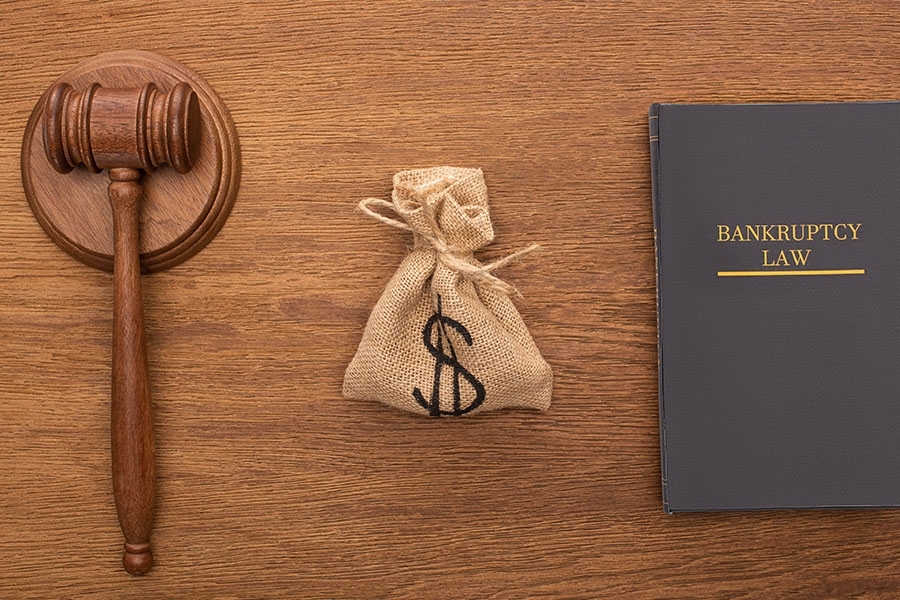Jeff Kelly: Hello, this is Jeff Kelly and in today’s episode I want to talk about how rising home prices cause bankruptcy problems. How in the world could rise any equity in real estate cause financial problems for a homeowner? I know that sounds super strange, but I’m going to go on to explain how it’s happening.
Jeff Kelly: I have been practicing consumer bankruptcy for over 22 years, and I’ve never seen a real estate market like the one that is currently roaring. You would think that rising Home Equity would be good for all owners. But that is not the case for families who are in need of getting relief from credit card and medical debt that has accrued because of COVID related unemployment. How can rising home value stop people from filing bankruptcy?
Jeff Kelly: In Georgia, the most equity that a married couple can protect is $43,000. A single person can protect only 21,500. So what happens if you need to file bankruptcy? But you have equity that is way over the limits? The answer to this question is the same as the answer to most legal questions. It depends, depends on what? it depends on the exact amount of equity. When a family has slightly more equity than the exempted limits, they usually won’t present a significant problem in bankruptcy. Because you have to factor in real estate transaction cost if the trustee were to move to sell the house in question. You know, in most cases, you can count on 10% of the purchase price is going to go to real estate commission real estate costs and legal costs for closing on a house. However, it’s not uncommon right now. For me to see potential clients who have over $100,000 in equity, because real estate is so ridiculously hot right now. It is so hot. I’ve got a family member who just put their house for sale in Cobb County. And no joke in one week. They have 23 offers. It’s crazy. I’ve never seen anything like it. When is it going to end? I don’t know.
Jeff Kelly: The funny thing about real estate to me right now is that most of my clients don’t realize how high the value of their homes have climbed. In the past, we could rely on the tax assessor evaluations. Now the market is so ridiculously hot. Zillow seems to be a better source in most cases, and Zillow seems to be getting better and better at their formula for how they evaluate. So the question is, can you lose your house in a chapter 7 if you have too much equity? And the answer is yes, you can. The reason a person must be extremely careful and ascertaining the value of their home before filing chapter 7 bankruptcy is because once you’re in the thick of it, you can’t get out.
Jeff Kelly: Little side note, one of my favorite television shows growing up was Gilligan’s Island. And it seemed like there were a lot of episodes where Gilligan would get stuck in quicksand. Now, of course, Gilligan’s Island is a great, wonderful show. And so he always got out, but I mean, sometimes he had to struggle really, really hard. Okay. But chapter 7, if you’ve got equity in your house is kind of like quicksand. But unlike Gilligan, you ain’t getting out. Once you file a Chapter 7 bankruptcy, and the trustee takes an interest in your house and finds a buyer. Your house is as good as gone Pack your bags. Now the trustee would have to pay off your mortgage and pay you all of the exempted amount that you were able to claim in your bankruptcy case. And next, of course, he would pay himself or herself a handsome fee for his or her services, and then use the rest to pay your debts.
Jeff Kelly: How can you avoid the calamity of losing your home in chapter 7, but still eliminate debt hanging over your head? Well, the answer is ding ding ding chapter 13.
Jeff Kelly: For the chapter 13 to be successful, we must create a plan that will pay the same amount of money to all unsecured creditors as they would have received if chapter 7 had been the chosen course of action. This is called the bankruptcy liquidation test. All chapter 13 bankruptcies must pass the liquidation test.
Jeff Kelly: Here’s an example of where chapter 13 could work. Let’s say a person has a house with $20,000 in exposed equity, assuming no car Debt, Tax Debt or any other type of security priority debt. This person will be looking at chapter 13 payment of around $450 per month. What if they owed $200,000 in medical debt, this person is under the median income limit on the Means Test, the payment will still be $450 a month. What are they owed $500,000. In medical debt? Well, again, if the person is under the median income limit, the payment will still be $450 a month, the payment will still be $450 per month because the driver in the case is the exposed equity and not the total amount of debt. In this specific case, $450 per month takes care of it.
Jeff Kelly: Here’s an example where a chapter 13 payment would never work, let’s change the facts and say the exposed equity is $100,000. If the person owes $200,000 in medical debt, credit card debt or other type of unsecured debt, we have to pay back $100,000 in the chapter 13 case, and the longest that chapter 13 case can go is 60 months. So in this specific case, the payment would be around $1900 a month. What if this person cannot afford to pay $1900 per month to protect the house? Well, the answer is don’t file chapter 13. Because it won’t be feasible. It’s not going to work.
Jeff Kelly: What do families do who are caught with huge amounts of debt, but have too much equity in their house to file a Chapter 13? The harsh truth is that they’re gonna have to sell the house and pay the debt. Where do they go after selling the house? This is an awful dilemma right now, because rents are rising beyond reach of many people. In addition, many people who lost their jobs because of COVID are finding new jobs that don’t pay as much as the previous job. borrowing against the equity is not possible for many people because of the decreased income. What is a solution? I have one, I think the Georgia legislature should raise the equity limits to $100,000 for a single person, and $150,000 for a married couple. Furthermore, I believe I believe the Georgia housing exemption should be adjusted yearly, according to the consumer price index, so that the mount keeps pace with inflation.
Jeff Kelly: If you’d like to set up a free consultation with my office, please call me at 770-637-1756 the consult is free but the information you receive could relieve you of a ton of stress and save your house. Also, please go to my website www.Kellycanhelp.com download a free copy of a book that I wrote on Chapter Chapter 13 and chapter 7. And I thank you guys for tuning into my podcast here and I hope you have a great day and call soon again. That number is 770-637-1756 Thank you

Transcript: Intro Speaker: It’s time for KellyCanHelp hosted by Jeff Kelly, Attorney at Law with the law office of Jeffrey B. Kelly. And now...

Hello, this is Jeff Kelly and Today is August the 13th 2020. And today I want to talk about, are you legally liable for...
